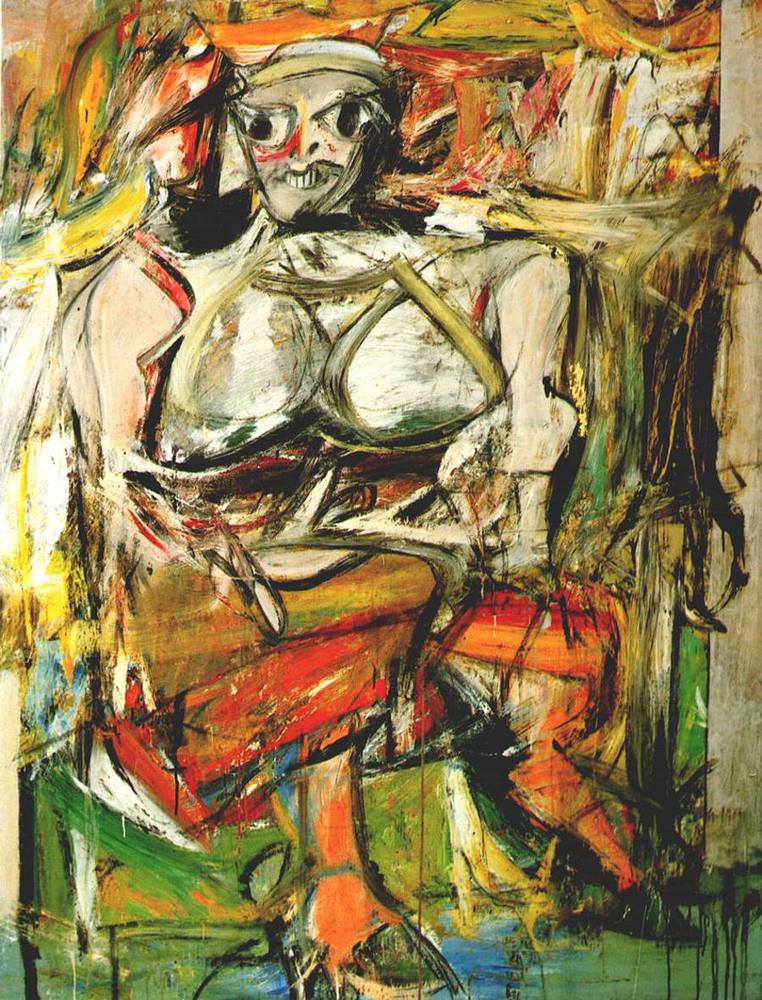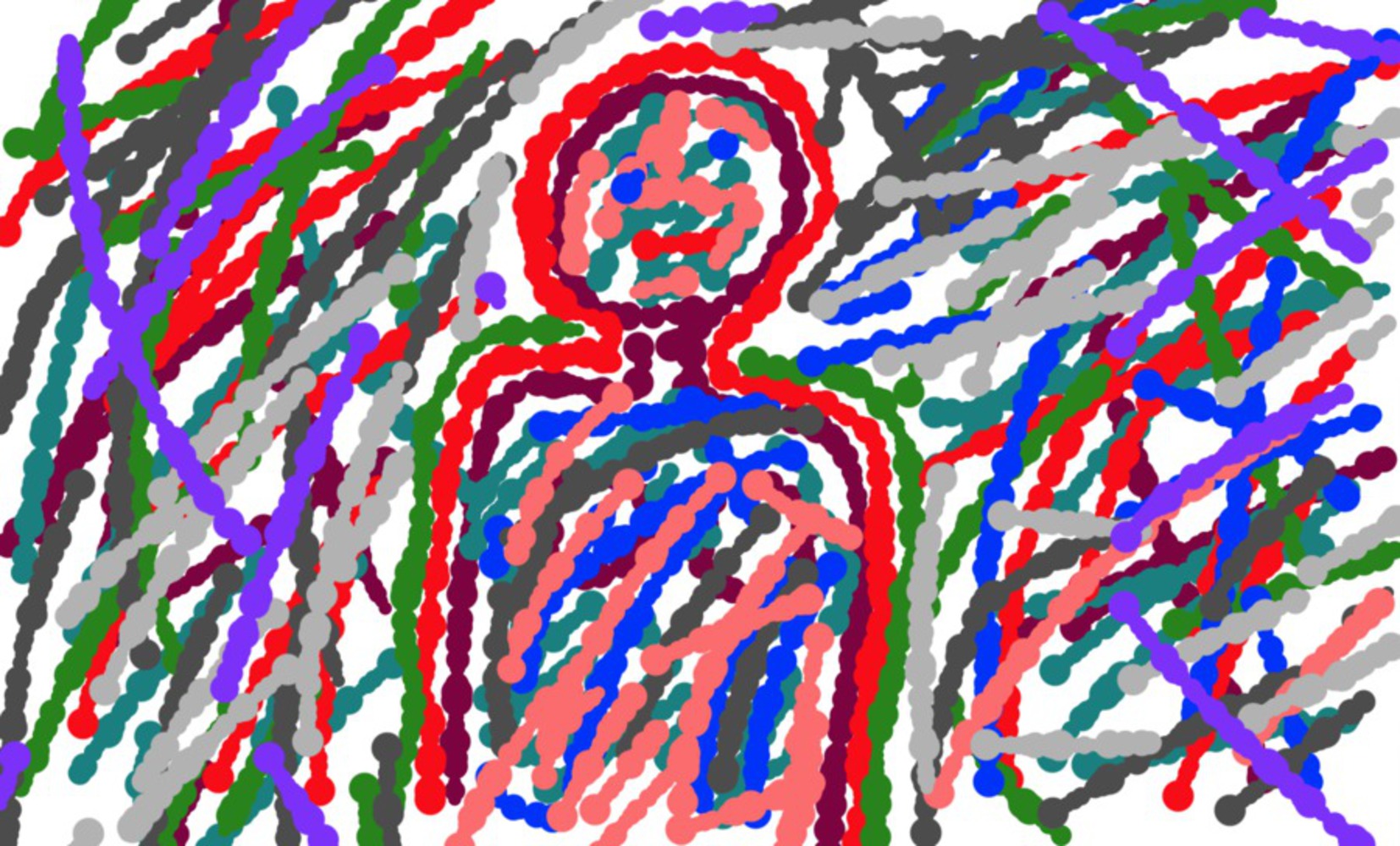Artist:
My artist was Willem De Kooning. His parents were divorced when he was 3 years old and he left school at the age of 12 to work in commercial art. He went to New York and has done many jobs to earn money, but money wasn’t that important to him as he was offered good money in a job in Philadelphia and he said he would rather be poor but be in New York. He had an apprentice who he later married, divorced and remarried.
He was very influenced by Arshile Gorky. While his art was very abstract, he painted pictures of women in his paintings. However, the women he drew are very different than the classical portrayal of women. Kooning’s women are angry, they don’t look like a beautiful and obedient wife, waiting for the husband. The women in his paintings also show his feminist side. Kooning’s drawing style, as in how he used the brush and such, was also angry. “De Kooning worked on the picture (Woman I) for two years, revising it constantly, and aggressively - his dealer noted that his canvases often had holes punched through from the violence of his brush strokes.”

